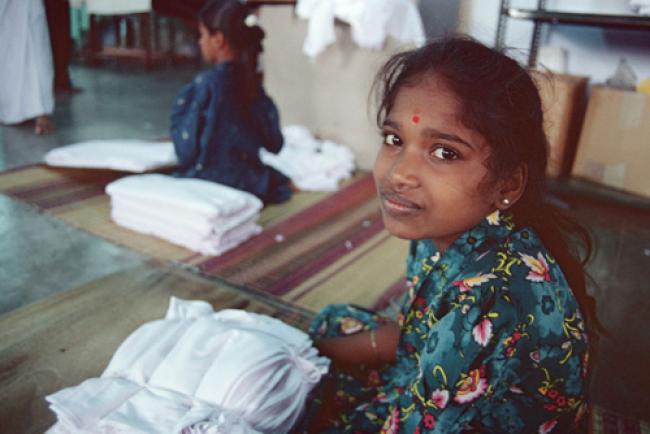19 Oct 2013, 11:43 am Print

“Partnership is the backbone for effective coordinated efforts to implement a human-rights based approach while addressing this multi-faceted phenomenon,” said the human rights experts from the United Nations, the Council of Europe and the Organization for Co-operation and Security in Europe (OSCE), on the occasion of the European Anti-Trafficking Day.
“Cooperation between origin, transit and destination countries, but also with regional and international mechanisms, as well as private stakeholders such as multi-national corporations and civil society organizations, is essential for comprehensive responses to trafficking in persons.”
The UN Special Rapporteur on trafficking in persons, especially women and children, Joy Ezeilo, underlined that trafficking is a grave violation of human rights which leads to further abuses.
“The rights of victims should be the beating heart driving all efforts towards eradicating this phenomenon which leads thousands of women, girls, men and boys in situation of profound exploitation and violence,” Ezeilo said. “The victims, whose rights are stolen, have to be protected, assisted, provided remedies, and re-integrated.”
Human trafficking is a multi-billion dollar industry which has trapped some 21 million men, women and children in forced labour. According to 2005 estimates released by the International Labour Organization (ILO), profits generated in the sex industry alone are as high as USD 32 billion a year. Furthermore, nearly one-third of all victims of human trafficking officially detected around the world between 2007 and 2010 were children, according to a report released in December 2012 by the UN Office on Drugs and Crime (UNODC) citing data from 132 countries.
The President of the Council of Europe Group of Experts on Action against Trafficking in Human Beings (GRETA), Nicolas Le Coz, emphasized that countries have a responsibility under international and European law to provide protection to victims to ensure their moral and physical integrity and prevent re-victimization, including by prosecuting and punishing the traffickers.
“Given the worrying proportions human trafficking has taken, there is a need to move from a national security model to a human rights-based approach in order to better identify and assist victims of trafficking who are often undocumented migrants,” Le Coz said.
For the OSCE Special Representative and Co-ordinator for Combating Trafficking in Human Beings, Maria Grazia Giammarinaro, “the realization of a victim's right to effective remedies is at the core of the human rights-based approach as redress and compensation are the key stepping stones on the path to full recovery and social inclusion without fear or stigma.”
The three international expert mechanisms stressed that “a universal human rights-based approach is paramount to end human trafficking in the world Friday.”
Of the 21 million in forced labour 70% are in forced labour exploitation and 22% are in forced sexual exploitation. Photo: ILO/A. Khemka
- Viral Irish food bank photo sparks shocking racist attacks on Indians
- Caught on camera: Two foreigners assaulted in Israel in an alleged racial attack
- Pakistan: Parents heartbroken after court sides with man accused of kidnapping minor Christian girl
- Pakistan: Trafficked 35 years ago, Bangladesh-born woman approaches court against FIA for offloading her from flight!
- Hindu tea worker found bound and bloodied in Bangladesh garden during general elections; investigation underway





-1763561110.jpg)
